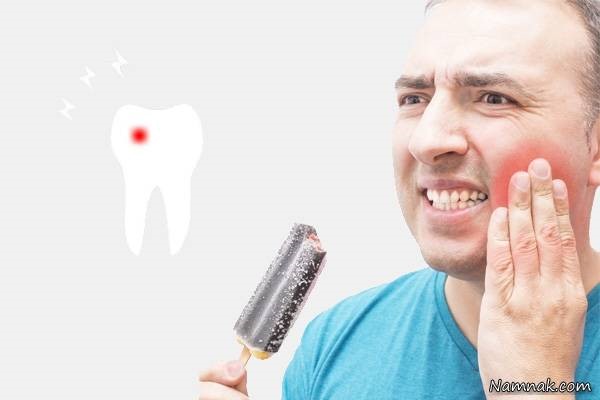Understanding Teeth Sensitivity: Causes, Symptoms, Treatments, and Prevention

Teeth sensitivity is a common dental problem that affects millions of people worldwide. It is characterized by a sharp pain or discomfort in the teeth when exposed to certain stimuli, such as hot or cold food and beverages, sweet or acidic foods, or even cold air. Teeth sensitivity can be caused by a variety of factors, ranging from enamel erosion and gum recession to cavities and cracked teeth. In this article, we will discuss the causes, symptoms, and treatments of teeth sensitivity, as well as the ways to prevent it
Causes of Teeth Sensitivity
Enamel Erosion: The enamel is the hard outer layer of the tooth that protects the inner layers from decay and damage. When the enamel is worn down due to brushing too hard, consuming acidic foods and beverages, or grinding teeth, the dentin layer beneath it becomes exposed. Dentin is a soft layer that contains tiny tubules that lead to the tooth’s nerves. When the tubules are exposed, they allow hot, cold, sweet, or acidic stimuli to reach the nerves, causing pain or discomfort
- Gum Recession: Gum recession occurs when the gum tissue surrounding the teeth pulls back, exposing more of the tooth’s root. The root is not covered by enamel, making it more sensitive to hot, cold, or acidic stimuli. Gum recession can be caused by a variety of factors, including gum disease, aging, smoking, or brushing too hard
- Cavities: Cavities are a common dental problem caused by bacteria that produce acid, which attacks the tooth’s enamel, causing it to weaken and eventually form a hole. When a cavity is deep enough to reach the dentin layer, it can cause teeth sensitivity, especially when exposed to hot, cold, sweet, or acidic stimuli
- Cracked Teeth: Cracked teeth can also cause teeth sensitivity. When a tooth is cracked, it can expose the dentin layer, making it more sensitive to hot, cold, or acidic stimuli
Symptoms of Teeth Sensitivity
The most common symptom of teeth sensitivity is a sharp, sudden pain or discomfort in the teeth when exposed to hot, cold, sweet, or acidic stimuli. Other symptoms may include
Pain or discomfort when brushing or flossing
Pain or discomfort when biting down
Swollen or bleeding gums
Toothache
Headache
If you experience any of these symptoms, it is important to see your dentist to determine the underlying cause of your teeth sensitivity
Treatments for Teeth Sensitivity
The treatment for teeth sensitivity depends on the underlying cause. Some common treatments include
Desensitizing Toothpaste: Desensitizing toothpaste contains compounds that help block the tubules in the dentin layer, reducing the sensitivity to hot, cold, sweet, or acidic stimuli
Fluoride Treatment: Fluoride is a mineral that helps strengthen the tooth’s enamel and reduce sensitivity. Your dentist may recommend a fluoride treatment to help protect your teeth from further decay and damage
Dental Bonding: Dental bonding is a procedure in which a tooth-colored resin is applied to the tooth’s surface to cover the exposed dentin layer, reducing sensitivity and improving the tooth’s appearance
Gum Grafting: Gum grafting is a surgical procedure in which gum tissue is taken from another part of your mouth and used to cover the exposed root of the tooth, reducing sensitivity and improving the tooth’s appearance
Root Canal: In severe cases of teeth sensitivity, a root canal may be necessary. During a root canal, the infected or damaged pulp inside the tooth is removed, and the tooth is sealed to protect it from further damage
Prevention of Teeth Sensitivity
The best way to prevent teeth sensitivity is to practice good oral hygiene. This includes brushing your teeth twice a day with a soft-bristled toothbrush, flossing daily, and using fluoride toothpaste. Here are some additional tips to prevent teeth sensitivity
Avoid brushing too hard: Brushing too hard can wear down the enamel and expose the dentin layer. Use a soft-bristled toothbrush and gentle brushing motions
Avoid acidic foods and beverages: Acidic foods and beverages, such as citrus fruits, tomatoes, soda, and sports drinks, can erode the enamel and increase teeth sensitivity. Limit your consumption of acidic foods and beverages or rinse your mouth with water after consuming them
Wear a mouthguard: If you grind your teeth at night, wear a mouthguard to protect your teeth from further damage
Visit your dentist regularly: Regular dental check-ups can help detect and treat dental problems before they become more serious
In conclusion, teeth sensitivity is a common dental problem that can cause discomfort and pain. It can be caused by a variety of factors, including enamel erosion, gum recession, cavities, and cracked teeth. The most common symptom of teeth sensitivity is a sharp, sudden pain or discomfort in the teeth when exposed to hot, cold, sweet, or acidic stimuli. Treatment for teeth sensitivity depends on the underlying cause and may include desensitizing toothpaste, fluoride treatment, dental bonding, gum grafting, or root canal. The best way to prevent teeth sensitivity is to practice good oral hygiene, avoid brushing too hard, acidic foods and beverages, wear a mouthguard if needed, and visit your dentist regularly. By taking these steps, you can keep your teeth healthy and free of sensitivity




